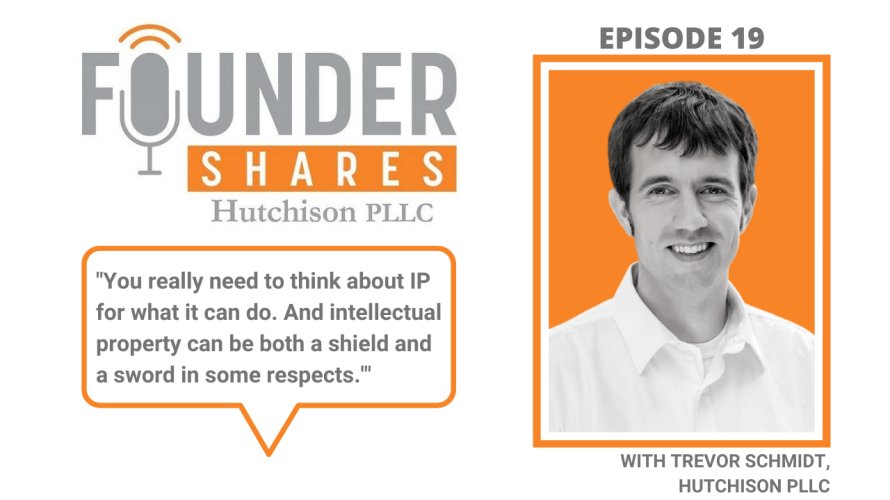How to Protect Your Startup Intellectual Property (IP)

Trevor was on a bus tour in Boston when he decided he was going to be a lawyer.
“Hey, you know what?,” fourth grade Trevor asked his parents, “This is what I'm going to do. I'm going to be a lawyer."
And, for whatever reason, that really stuck. Every step he took towards his goal—competing in mock trials in high school, clerking for a law firm in college—reaffirmed that he made the right decision in choosing lawyer over astronaut.
Trevor loves hosting the Founder Shares podcast and hearing entrepreneurs share their business-building stories. But, in the latest episode, he became the guest and shared some of the biggest mistakes he sees founders making when protecting their intellectual property, or IP.
When people think about IP, they typically think about it in four categories—patents, trademarks, copyrights and trade secrets—and each of them provide a business legal protection from others infringing on their intellectual property.
But, each category has unique and specific requirements that must be met in order to provide that protection, and it’s easy for non-lawyers to make mistakes along the way.
And it starts with the formation of the business, when you should be documenting and transferring any IP rights to that company. When an individual creates a work, they become the owner of that work, meaning you must clearly document the company’s new ownership of that work.
“So, if he's an independent contractor and he's created code for you,” Trevor said, “initially, that person owns the code. Unless there's an agreement in place that transfers those rights back to the company, you may have a situation where you think you have something that's really owned by somebody else.”
Maybe even worse is when a founder falls in love with a brand name or ideal trademark before doing their due diligence of searching for and clearing it. Even worse than that, rolling that concept out in a big way only to find out they are legally infringing on someone else’s IP.
Unfortunately, this is something that he sees quite a bit.
“You know, I've had this name and mine since I was a kid,” Trevor said as an example. “This is what my mom said my company should be. Sad news. There's actually somebody who's already got a federal registration for that market. You can't can't use it.”
Another example?
“We got excited,” a founder says. “We got started. I just ordered $10,000 worth of product from the manufacturer in China. I just got it. I'm ready to sell it.”
And they can’t. And it stinks. That’s why, as you’re building your dream business, it’s important to consult experts that can help keep you out of legal trouble … and disappointment.
For more IP mistakes and lessons, check out this episode of the Founder Shares podcast, available on Apple Podcasts, Spotify or whenever you like to listen.
The blog content should not be construed as legal advice.


Show Comments / Leave a Comment
Comments
There are no comments yet.
Leave a Comment